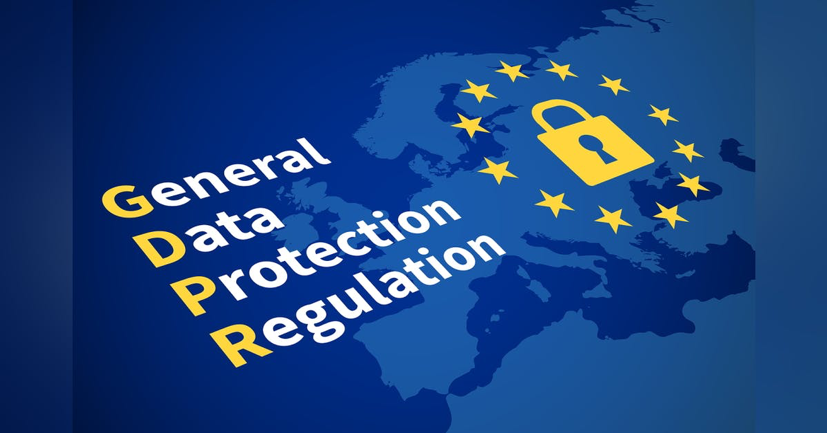Where websites serve as the storefronts of the digital age, the web Hosting and GDPR importance of web hosting cannot be overstated. As businesses and individuals strive to create an online presence, it becomes imperative to understand the intricacies of data protection and privacy laws. One such regulation that has significantly impacted the digital landscape is the General Data Protection Regulation (GDPR). This blog post will delve into the symbiotic relationship between web hosting and GDPR compliance, unravelling the key considerations and obligations that hosting providers and website owners must be aware of.
The GDPR Primer
Enforced in May 2018, the GDPR is a comprehensive data protection regulation those targeting or collecting data related to EU residents. The primary objective of the GDPR is to empower individuals with control over their data and to ensure that businesses handle this information responsibly.
Web Hosting’s Role in GDPR Compliance
When individuals or businesses choose a hosting service, they entrust the provider with sensitive data. It is crucial for hosting companies to compliance with the GDPR.
1. Data Processing Agreements
Under the GDPR, hosting providers are considered data processors, while website owners are data controllers. A crucial step in achieving compliance is the establishment of a Data Processing Agreement (DPA) between the hosting provider and the website owner. This document outlines both parties’ responsibilities, obligations, and rights concerning the processing of personal data.

2. Security Measures
Hosting providers must implement stringent security measures to safeguard against data breaches and unauthorized access. This includes encryption, regular security audits, and adopting industry-standard security protocols. GDPR compliance mandates that personal data is processed securely, and hosting providers must proactively identify and mitigate potential risks.
3. Data Breach Notifications
In the unfortunate event of a data breach, hosting providers must notify the affected website owner. Transparency is a crucial tenet of the GDPR, and prompt notification allows affected parties to take necessary measures to protect themselves.
Website Owners’ Responsibilities
While hosting providers bear a significant responsibility for GDPR compliance, website owners must also play an active role in protecting personal data.
1. Informed Consent
Websites must obtain explicit and informed consent from users before collecting and processing their data. This includes clearly explaining the purpose of data collection and allowing users to opt in or out.
2. Data Minimization
The GDPR emphasizes the principle of data minimization, encouraging website owners to collect only the necessary information required for the specified purpose. Storing web Hosting and GDPR excessive or irrelevant data is a violation of this principle.
3. User Rights
Individuals have certain rights under the GDPR, such as access, rectify web Hosting and GDPR, and delete their personal data. Website owners must facilitate the exercise of these rights and respond to user requests in a timely manner.
The Ever-Evolving Landscape
Continuously reassessing and updating security measures are integral aspects of maintaining GDPR compliance.
Embracing Accountability
In the realm of GDPR compliance, accountability is paramount. Both hosting providers and website owners are accountable for their roles in protecting user data. Hosting providers should implement mechanisms for regular assessments and audits to ensure ongoing compliance. Simultaneously, website owners must maintain transparency about their data processing practices and regularly update their privacy policies to reflect any changes.
International Implications
While the GDPR is specific to the European Union, its global impact cannot be ignored. Many countries worldwide are adopting or considering similar data protection regulations. For businesses and individuals operating beyond EU borders, understanding and implementing GDPR principles can serve as a blueprint for a global standard of data protection.
Web Hosting and GDPR
Data Transfers and Hosting Location
The EU to ensure that data enjoys the same level of protection wherever it is processed. Hosting providers often have data centers in various locations, and website owners need to be mindful of where their hosting provider stores and processes their data. Ensuring that hosting sites comply with GDPR standards is crucial in overall compliance.
The Role of Emerging Technologies
Emerging technologies continually shape the web hosting landscape, and the GDPR must adapt accordingly. Cloud hosting, artificial intelligence, and other innovations present new challenges and opportunities for compliance. Hosting providers must incorporate privacy by design principles, ensuring their infrastructure and services meet GDPR requirements. Meanwhile, website owners should stay informed about the implications of utilizing these technologies in their data processing activities.
Penalties for Non-Compliance
The GDPR imposes substantial fines for non-compliance, underscoring the seriousness of data protection. Hosting providers and website owners can face penalties for various violations, from failing to obtain proper consent to inadequate security measures leading to data breaches. Understanding the potential consequences reinforces the need for a proactive and diligent approach to compliance.
The Future of Web Hosting and GDPR
GDPR compliance will likely deepen as we look to the future. Evolving technologies, societal attitudes toward privacy, and legislative changes will shape the landscape. Hosting providers and website owners who prioritize data protection will meet legal requirements and gain a competitive edge by fostering trust and confidence among users.
Conclusion
In conclusion, the marriage of web hosting and GDPR compliance is critical to the digital age. Businesses and individuals navigating the online world must recognize the symbiotic relationship between hosting providers and data protection. By embracing GDPR principles, staying informed about evolving regulations, and leveraging emerging technologies responsibly, we can forge a digital landscape prioritizing privacy, security, and ethical data practices. As we embark on this journey, let’s collectively shape a future where the online experience is innovative and respectful of individual rights and freedoms.




